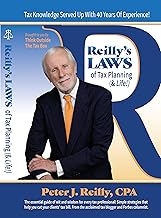Originally published on Forbes.com on June 6th, 2012
After accepting a few guest posts from Alan Collinge, I heard from Sallie Mae. At the risk of being confused with a journalist, I had an interview with John Remondi, Chief Operating Officer. The Sallie Mae people indicated that Alan is not always factually accurate, although they indicated they are not opposed to bankruptcy protection for student loans. Probably the biggest difference they have with Alan is on his assertion that they profit from defaults. Mr. Remondi made a pretty convincing case to me that they would rather that the loans performed. They convinced me, but not Alan, who is back with another guest post on the subject.
Two weeks ago, Peter Reilly (noted accountant, and courageous Forbes contributor) was invited by the top brass at Sallie Mae to meet to discuss my contributions to this column, and comments I made regarding the company in particular. While it was a bit difficult to extract any specific criticism they had about my claims, they did make it clear that they felt I was wrong about my assertions that the company makes more money from defaulted student loans than loans that remain in good stead. In response, I would like to lay out the facts about defaulted student loans. They are well proven, not controversial, and unambiguous.
Lenders are paid full book value on defaulted loans (principal plus interest). For defaulted loan collections, collectors get to keep 18 cents out of every dollar before anything is applied to principal or interest. If the loan is rehabilitated, the new, much larger, loan is sold, and the guarantors get paid (in addition to 10 months of payments that go straight into their pockets) something like 18% of the inflated balance.
For lenders who only lend to students (and don’t guaranty, or collect on defaulted loans), they lose no money on a default. The money they are reimbursed can (and is) immediately used to fund another loan. Therefore, these lenders, fiscally, have a neutral outlook about defaults (i.e. they don’t care one way or another if a loan defaults).
If a company both loans, and also owns collection subsidiaries, then as long as collection of defaulted student loans is profitable (and it is extremely profitable), then this company clearly and unambiguously has a financial interest that loans default rather than remain in good stead.
If a company not only lends, and collects, but also owns a guarantor company (guarantor’s lifeblood is penalties and fees attached to defaulted loans), then this incentive is increased significantly.
Sallie Mae went on an acquisitions tear in the late 1990’s, acquiring some of the largest collection companies, and also multiple guaranty agencies, including the largest, USA Funds . Therefore it is impossible for Sallie Mae to claim that they would rather loans remain in good stead than default.
I think I’m going to remain agnostic on this issue. I am waiting to hear back from Sallie Mae. I also might take another crack at Sallie’s 10-K, but if you want to beat me to it, jump right in and comment.
You can follow me on twitter @peterreillycpa.































































































